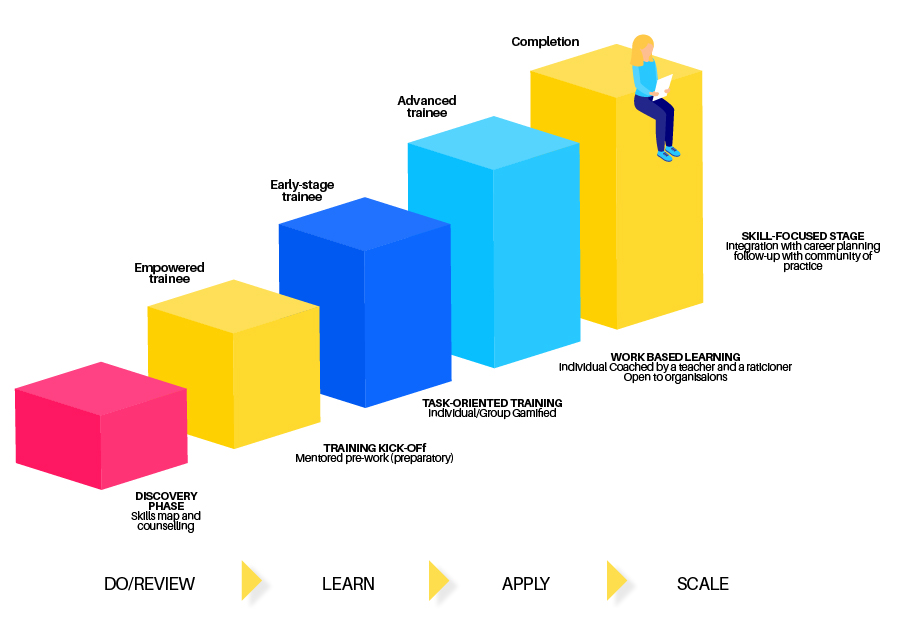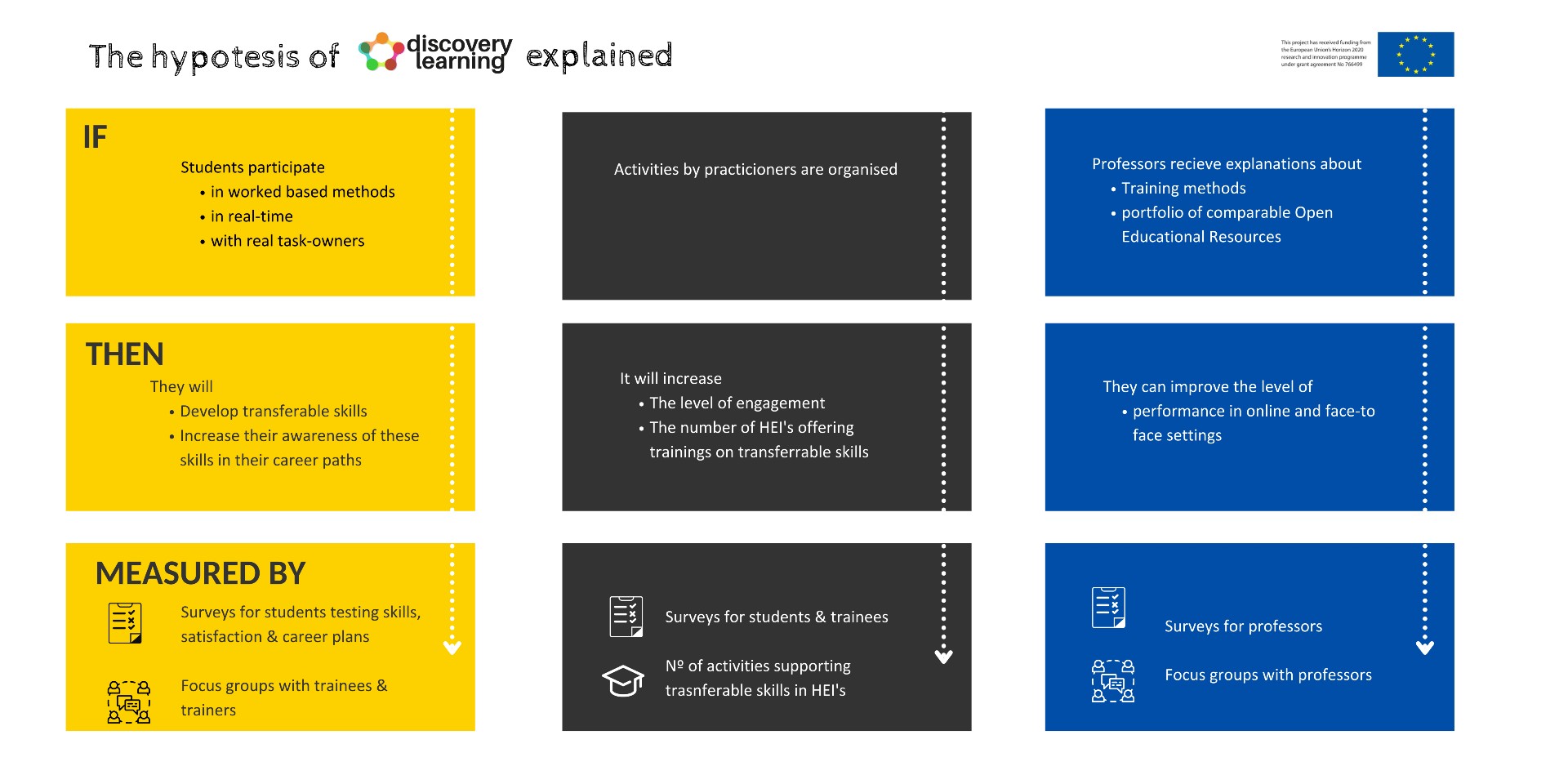

In an effective training, trainees should be able to
Furthemore, in order to be effective, the training needs to take into consideration the current context:
In such a context, the goals of learning are shifting from focus less on knowledge acquisition by individuals, and more on knowhow generation with others.
Collaboration: When learners together create a joint understanding, they also develop higher order skills (interpersonal and related to management and communication), and collaborative methods give better academic results.
Gamification will also be applied in order to help gaining the attention of trainees, enhancing their confidence and motivating them to learn (gamification incorporates a “want to learn” attitude). It also shows a positive impact in effectiveness of training by allowing trainees to know exactly where they go right or wrong, and in remembering concepts for a longer time.
Blended learning is rooted in the idea that learning is not just a one-time event, but a continuous process. It provides baseline benefits over using any single learning delivery medium alone.
As the result of a joint reflection process amongst partners, the initial formulation of Discovery Learning’s hypotheses is shown in the following infographic. However, they are considered alive, as they will evolve as feedback from professors, students, practitioners and experts in Discovery Learning’s Advisory Board (EAB) grows.

In order to test and verify the second hypothesis (activities with practitioners), it has been decided to carry out a series of experimentation protocols (online and off-line trainings on a number of science & technology trends related to transferable skills) with early-stage researchers. For this same purpose, we have designed an ad-hoc survey to gather relevant information from the participants of these experimentation protocols. If you want to get access to the data generated from the surveys to trainees, click on the link.